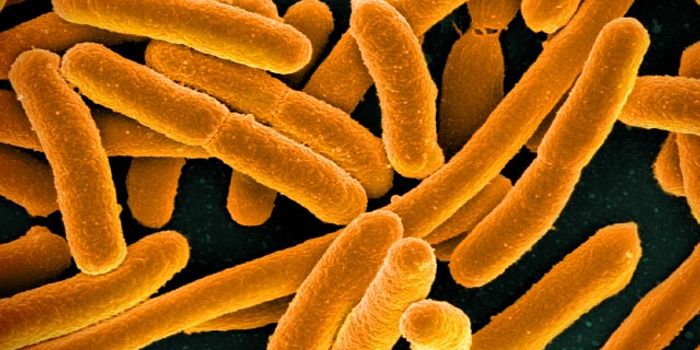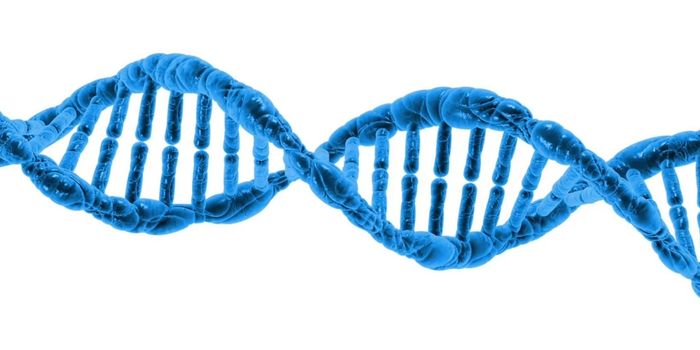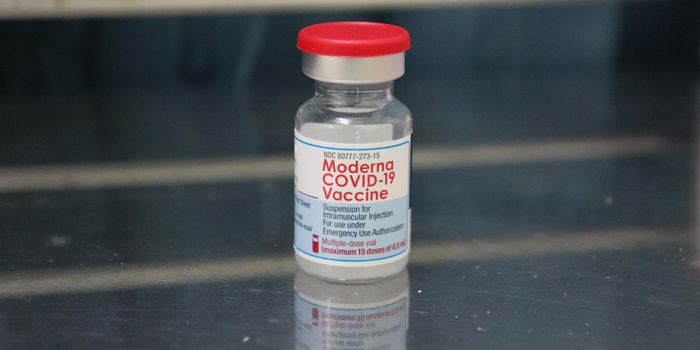CRISPR/Cas9 was created a few years ago and has since been hailed for revolutionizing gene editing (check out the video below for a primer on how it works). It has been used in laboratories, and scientists are also trying to bring it into the clinic to treat patients. There has been concern about what side effects it might have, however. While some focus has been on how it might make unintended edits, this work has found that human cells are vigilant and have defense mechanisms that kick in when something is amiss with their DNA, halting cell division and initiating cell death in edited cells. It also seems that when CRISPR does work as intended in human cells, it may bring an increased risk of cancer. These two studies, reported in Nature Medicine, have shown that there is a reason to use caution when applying CRISPR, especially to patients.
In one study, researchers at the Karolinska Institute and the University of Helsinki have determined that when CRISPR is applied to human cells in the lab, a gene called p53 gets activated. The p53 protein can halt cell division and trigger cell death; the protein acts to initiate the repair of broken DNA, and all of those functions cut down on the very errors that CRISPR is meant to introduce; as a "guardian of the genome," it makes the technique less effective. The investigators confirmed it when they removed p53; in cells where there was no p53, gene editing was much better.
"By picking cells that have successfully repaired the damaged gene we intended to fix, we might inadvertently also pick cells without functional p53,” noted study co-first author Dr. Emma Haapaniemi, a researcher at the Department of Medicine at Karolinska Institutet in Huddinge. "If transplanted into a patient, as in gene therapy for inherited diseases, such cells could give rise to cancer, raising concerns for the safety of CRISPR-based gene therapies."
Scientists at the Novartis Institutes for Biomedical Research in Cambridge, Massachusetts wanted to develop a new kind of CRISPR to use on stem cells. In doing so, they could create neurons from the stem cells. But they were having difficulties editing those genes, and they wanted to follow up to figure out why. The p53 gene was activated, they found, so they acted to turn it off. When they did so, very few of the edited stem cells survived.
The scientists caution that this is not the death knell for CRISPR, they merely want to alert researchers to proceed carefully. Trials are already slated to test CRISPR to treat inherited blood disorders or cancer. One has been put on hold for now (as described in the video below).
"CRISPR-Cas9 is a powerful tool with staggering therapeutic potential", added study co-supervisor Dr. Bernhard Schmierer, researcher at the Department of Medical Biochemistry and Biophysics at Karolinska Institutet, and Head of the High Throughput Genome Engineering Facility of Science for Life Laboratory (SciLifeLab). "Like all medical treatments, however, CRISPR/Cas9-based therapies might have side effects, which the patients and caregivers should be aware of. Our study suggests that future work on the mechanisms that trigger p53 in response to CRISPR-Cas9 will be critical in improving the safety of CRISPR-Cas9-based therapies."
Sources: AAAS/Eurekalert! Via Karolinska Institute, Haapaniemi et al Nature Medicine, Ihry et al Nature Medicine








